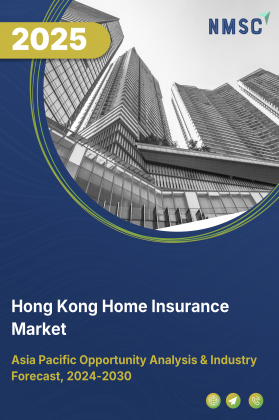
Thailand Travel Insurance Market by Age (Millennials, Generation X, and Baby Boomers), by Income Level (Low-income travelers, and Others), by Coverage (Medical Coverage, Trip Cancellation Coverage, Band Others), by Days of Coverage (Short-Trip Insurance, Standard Trip Insurance, and Others), by Distribution Channel (Insurance Companies, Banks, and Others), by End User (Pilgrim Travelers, and others) – Opportunity Analysis and Industry Forecast, 2025–2030.
Industry: BFSI | Publish Date: 04-Nov-2025 | No of Pages: 82 | No. of Tables: 102 | No. of Figures: 59 | Format: PDF | Report Code : BF1995
Thailand Travel Insurance Market Overview
The Thailand Travel Insurance Market size was valued at USD 199.7 million in 2024 and is predicted to reach USD 504.1 million by 2030, registering a CAGR of 15.9% from 2025 to 2030.
The Thailand travel insurance market refers to the sector focused on offering insurance coverage for travelers either originating from or traveling within Thailand. This market provides various policies designed to protect against travel-related risks, including trip cancellations, medical emergencies, lost or delayed luggage, and travel disruptions. Key features of the market include flexible options such as single-trip, multi-trip, and specialized policies tailored for high-risk activities or travelers with pre-existing medical conditions.
As Thailand continues to be a popular destination for international tourists and a significant number of Thai residents travel abroad, travel insurance plays a vital role in ensuring financial protection. With customized coverage options designed to meet diverse needs, Thai travel insurance offers reassurance and confidence to those journeying within the country or venturing abroad. This insurance sector provides peace of mind and essential financial security helping travelers navigate potential risks, ensuring they can explore their destinations with peace of mind.
Expansion of Outbound Travel Among Thai Citizens
In 2025, Thailand is experiencing a resurgence in outbound tourism, with popular destinations like Japan and China attracting significant numbers of Thai travelers. This increase in international travel heightens exposure to potential risks such as medical emergencies, trip cancellations, and lost luggage, underscoring the importance of comprehensive travel insurance coverage. The growing awareness of these risks among Thai travelers is driving the demand for tailored insurance policies that offer financial protection and peace of mind during their journeys.
Digital Transformation Enhancing Accessibility and Customization
The integration of advanced digital technologies by local insurers is revolutionizing Thailand's travel insurance landscape. Companies are leveraging mobile applications, online platforms, and AI-driven tools to streamline policy management, facilitate online claims processing, and offer personalized insurance solutions tailored to diverse traveler needs. These digital advancements enhance accessibility, build consumer trust, and enable customers to effortlessly compare and select suitable coverage options, thereby accelerating market growth.
Regulatory Complexities Impeding Market Expansion
Thailand's travel insurance sector faces significant regulatory challenges that hinder market growth. Insurers are required to navigate a complex legal landscape, including compliance with the Office of Insurance Commission's (OIC) risk-based capital frameworks and stringent service level agreements. These regulations impose substantial administrative burdens and associated costs, which can deter innovation and delay the introduction of new travel insurance products. Consequently, these hurdles may discourage potential insurers from entering the market and restrain the growth of existing companies.
Expansion of Waste-to-Energy (WTE) Initiatives Enhances Market Potential
The increasing adoption of Waste-to-Energy (WTE) technologies presents a significant opportunity for the Indian waste management sector. With the country's municipal solid waste generation projected to rise substantially by 2030, WTE solutions offer a sustainable approach to mitigate the mounting waste crisis while simultaneously generating renewable energy. Government initiatives, such as the Swachh Bharat Mission and the introduction of the Draft Solid Waste Management Rules, 2024, underscore the commitment to integrating WTE projects into comprehensive waste management strategies. These policies not only promote recycling and reduce landfill dependency but also encourage private sector participation through public-private partnerships, thereby fostering innovation and investment in the sector.
By Age, Generation X Holds the Predominating Share in the Thailand Travel Insurance Industry
Generation X in Thailand exhibits a pragmatic approach to travel, balancing their professional responsibilities with family obligations, that shapes their travel habits and insurance preferences. While they recognize the importance of travel insurance for peace of mind, their commitment is less pronounced than that of millennials, who prioritize frequent trips and unique adventures. Unlike millennials, who actively incorporate flexible and comprehensive insurance into their travel plans, Generation X maintains a moderate frequency of travel and insurance acquisition. In comparison, baby boomers travel even less frequently, leading to a diminished focus on travel insurance products.
By End User, Medical Travelers is Projected to Witness the Highest CAGR Growth Until 2030
Medical travelers are individuals who travel to receive healthcare services, including treatments, surgeries, or specialized medical care within the country or abroad. According to our research, medical travelers is the fastest growing segment within the end user segment. This group of travelers requires tailored travel insurance policies with coverage for medical procedures, pre- and post-treatment care, emergency evacuations, and complications arising during travel. In contrast to leisure travelers, who prioritize flexibility, medical travelers focus on robust policies that address health-related risks and support their specific treatment needs. Insurers such as Chubb Limited and AIG Thailand offer specialized insurance plans for medical travelers, ensuring they receive essential financial protection and access to necessary medical assistance.
Unveiling the Spending Trends of Thai Outbound Travelers
The Thailand’s outbound tourism consumption per capita has risen over the years as shown in the graph below and increased to USD 390.41 billion in 2018. Nevertheless, the outbreak of COVID-19 led to a significant decrease in spending the previous year – by more than half. Thus, the recovery has been relatively sharp; the outbound tourism expenditure has grown to USD 402.60 billion in 2023 from 103% higher in 2022 than that of the pre-pandemic year 2019.
|
Thailand Outbound Tourism Expenditure |
Yearly Spending ($ Bn) |
Y-o-Y Change (%) |
|
2010 |
xx |
- |
|
2011 |
xx |
xx |
|
2012 |
xx |
xx |
|
2013 |
xx |
xx |
|
2014 |
xx |
xx |
|
2015 |
xx |
xx |
|
2016 |
xx |
xx |
|
2017 |
xx |
xx |
|
2018 |
390.41 |
xx |
|
2019 |
xx |
xx |
|
2020 |
xx |
xx |
|
2021 |
xx |
xx |
|
2022 |
xx |
xx |
|
2023 |
402.60 |
xx |
Source: Primary Research, Secondary Research, NMSC Analysis
For more detailed information, purchase our comprehensive report on the Thailand Travel Insurance Market at Buy Now
This resurgence in international travel is driving significant growth in Thailand’s travel insurance market. With heightened awareness of travel risks, particularly post-pandemic, Thai travelers are increasingly seeking comprehensive coverage for health, cancellations, and disruptions. The strong rebound in tourism spending directly translates to higher demand for travel insurance, ensuring robust growth for the industry as it adapts to evolving traveler needs and continues to expand alongside outbound tourism.
Analysis of Total Number of Outbound Travelers from Thailand
The information on tourist departures from Thailand shows a clear increase in international travel, reaching a peak in 2019 before the pandemic stopped travel activities in 2020 and 2021. However, travel rebounded strongly in 2022, with nearly 9.9 million departures and is reached to XY million in 2023. This advancement is believed to help increase demand for travel insurance as more travelers become aware of various risks that may occur while on the road. With regard to Thai tourists’ personal safety and security in consideration, the growth of travel insurance utilized as part of personal traveling belongings is anticipated while on the same foot it also let the insurers to develop and diversify its product to suit the Thai tourist market needs.
|
Year |
Tourist Departure |
|
2010 |
5451,000 |
|
2011 |
xxxxxxxx |
|
2012 |
xxxxxxxx |
|
2013 |
xxxxxxxx |
|
2014 |
xxxxxxxx |
|
2015 |
xxxxxxxx |
|
2016 |
xxxxxxxx |
|
2017 |
xxxxxxxx |
|
2018 |
xxxxxxxx |
|
2019 |
xxxxxxxx |
|
2020 |
xxxxxxxx |
|
2021 |
xxxxxxxx |
|
2022 |
xxxxxxxx |
|
2023 |
10,700,000 |
Source: Primary Research, Secondary Research, NMSC Analysis
Exploring Top International Travel Destinations for Thai Tourists
In the first quarter of the year 2023, Thai tourist preferred Cambodia, Japan, Vietnam, Singapore, and South Korea. This growing global travel is further putting pressure on travel insurance as travelers book their vacations and travels to look for coverage against the above-mentioned risks such as accompanied by medical emergencies and trip cancellations especially considering the costs accrued by healthcare service providers in the world or the changing requirements of travel in different countries. This enhanced growth in the travelers’ insurance as most Thais are beginning to pay attention to their insurance when they are traveling.
|
Country |
Number of Tourists |
|
Cambodia |
xxxxxx |
|
Japan |
xxxxxx |
|
Vietnam |
xxxxxx |
|
Singapore |
xxxxxx |
|
South Korea |
150,000 |
Source: Primary Research, Secondary Research, NMSC Analysis
For a more in-depth overview and detailed highlights of the report, connect with our analyst at Contact Us | NMSC
Competitive Landscape
The promising players operating in the global Thailand travel insurance industry include AXA Thailand, Muang Thai Insurance Public Co. Ltd, Bangkok Insurance Public Co. Ltd, Dhipaya Insurance Public Co. Ltd, Thaivivat Insurance Public Co. Ltd, Krungthai Panich Insurance Public Co. Ltd, Allianz Ayudhya General Insurance Public Co. Ltd, MSIG Insurance (Thailand) Public Co. Ltd, Tokio Marine Insurance (Thailand) Public Co. Ltd, AIG Insurance (Thailand) Public Co. Ltd, Pacific Cross Health Insurance Public Co. Ltd, Chubb Samaggi Insurance Public Co. Ltd., and Others.
For updated market share, buy our latest report at: Access the Full Report
These players are engaged in various collaboration across various regions to maintain their dominance in the Thailand Travel Insurance market.
|
DATE |
COMPANY |
RECENT DEVELOPMENTS |
|
|
July 2024: |
MSIG Insurance |
Introduced “MSIG Travel Easy Plus” travel insurance plan, offering more comprehensive coverage for modern travelers (including trip cancellation, medical, baggage) with simplified claims processing. |
|
|
|
|||
|
|
|||
|
|
|||
|
Jun-23 |
Europ Assistance |
Europ Assistance has announced its acquisition of several AXA Partners assistance businesses in the Asia-Pacific region, with a focus on expanding its operations in Thailand. This strategic move aims to enhance Europ Assistance's service offerings and strengthen its presence in the Thai market. |
|
|
|
|||
|
|
|||
|
|
|||
|
|
Thailand Travel Insurance Market Key Segments
By Age
-
Millennials
-
Generation X
-
Baby Boomers
By Income Level
-
Low-income Travelers
-
Middle-income Travelers
-
High-income Travelers
By Coverage
-
Medical Coverage
-
Trip Cancellation Coverage
-
Baggage and Personal Belongings Coverage
-
Accidental Death and Dismemberment (AD&D) Coverage
By Days of Coverage
-
Short-Trip Insurance
-
Standard Trip Insurance
-
Extended Trip Insurance
-
Multi-Trip Insurance
By Distribution Channel
-
Insurance Companies
-
Banks
-
Airlines
-
Online Platforms
-
Insurance Aggregators and Comparison Websites
-
Travel Agents and Tour Operators
By End User
-
Pilgrim Travelers
-
Education Travelers
-
Business Travelers
-
Family Travelers
Key Players
-
AXA Thailand
-
Muang Thai Insurance Public Co. Ltd.
-
Bangkok Insurance Public Co. Ltd.
-
Dhipaya Insurance Public Co. Ltd.
-
Thaivivat Insurance Public Co. Ltd.
-
Krungthai Panich Insurance Public Co. Ltd.
-
Allianz Ayudhya General Insurance Public Co. Ltd.
-
MSIG Insurance (Thailand) Public Co. Ltd.
-
Tokio Marine Insurance (Thailand) Public Co. Ltd.
-
AIG Insurance (Thailand) Public Co. Ltd.
-
Pacific Cross Health Insurance Public Co. Ltd.
-
Chubb Samaggi Insurance Public Co. Ltd.
Report Scope and Segmentation
|
Parameters |
Details |
|
Market Size Value in 2024 |
USD 199.7 Million |
|
Revenue Forecast in 2030 |
USD 504.1 Million |
|
Value Growth Rate |
CAGR of 15.9% from 2025 to 2030 |
|
Analysis Period |
2024–2030 |
|
Base Year Considered |
2024 |
|
Forecast Period |
2025–2030 |
|
Market Size Estimation |
Million (USD) |
|
Growth Factors |
|
|
Companies Profiled |
12 |
|
Market Share |
Available for 10 companies |
|
Customization Scope |
Free customization (equivalent up to 80 working hours of analysts) after purchase. Addition or alteration to country, regional, and segment scope. |
|
Pricing and Purchase Options |
Avail customized purchase options to meet your exact research needs. |

















 Speak to Our Analyst
Speak to Our Analyst

























